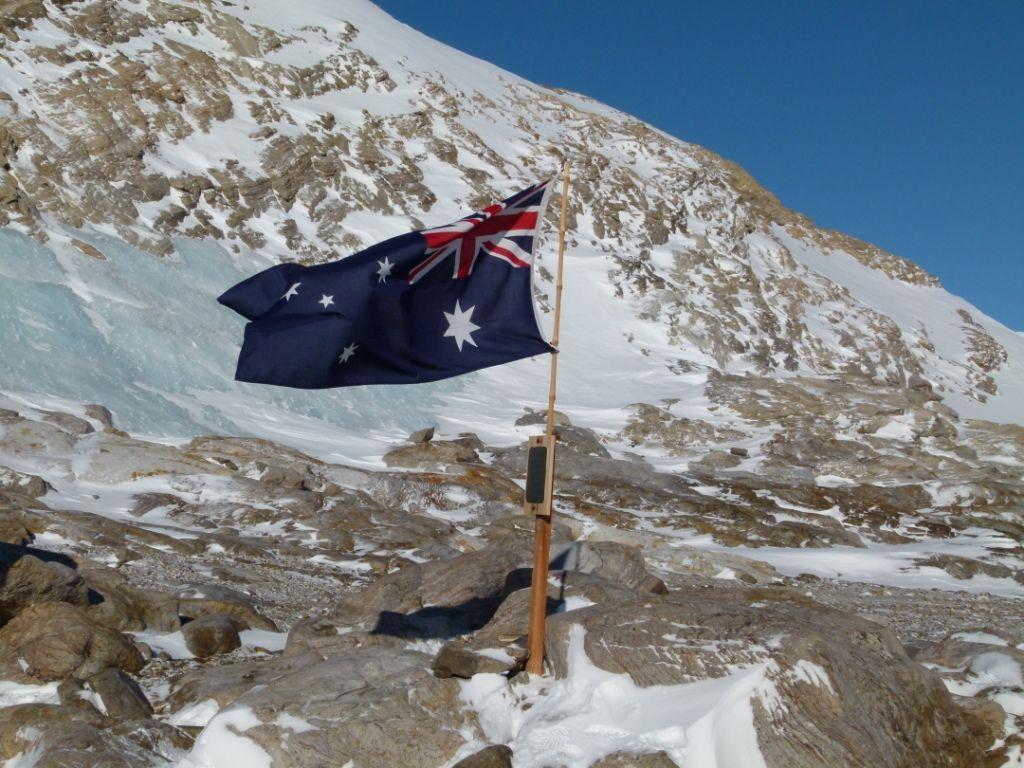Antarctica: coming in from the cold?
Posted By Peter Jennings on September 16, 2013 @ 06:00
 [1]Since the April 2013 publication of my previous post on Antarctica [2], two events have added further to the picture of Australia’s strategic interests in Antarctica. The first was the release of a new defence white paper [3] and the second a policy statement [4] from the then Opposition but which today becomes the incoming government. The former just marked time as far as Antarctica was concerned, but the latter suggests that we might see some real progress in pursuing our interests on and around the southern continent.
[1]Since the April 2013 publication of my previous post on Antarctica [2], two events have added further to the picture of Australia’s strategic interests in Antarctica. The first was the release of a new defence white paper [3] and the second a policy statement [4] from the then Opposition but which today becomes the incoming government. The former just marked time as far as Antarctica was concerned, but the latter suggests that we might see some real progress in pursuing our interests on and around the southern continent.
But first the defence white paper. Released on 3 May this year, it added two paragraphs of commentary about Antarctica:
2.76 There is no credible risk of Australia’s national interests in the Southern Ocean and the Australian Antarctic Territory being challenged in ways that might require substantial military responses over the next few decades. The Antarctic Treaty System provides for the international governance and management of Antarctica and sets aside use of Antarctica for peaceful purposes, with a particular emphasis on scientific research and environmental protection. The Antarctic Treaty’s ‘Madrid Protocol’ prohibits any activity relating to mineral resource exploitation other than scientific research, and until 2048 can only be amended by unanimous consent. Australia is a strong advocate of the Antarctic Treaty System and its goals.
2.77 There is, however, increasing international interest in Antarctica, including in Australia’s Antarctic Territory. Australia has forged operational and scientific cooperation relationships with several nations and will continue to monitor the strategic implications of international developments in the Antarctic region. To date, the Antarctic Treaty System has been well respected, but in coming decades it may come under pressure as resources become more scarce elsewhere.
In tone this statement’s perhaps closer to that of the 1987 White paper than the 2009 version. As I anticipated in my earlier piece, the 2013 white paper is careful not to advance any thought that Defence should take an (unfunded) leap into providing Antarctic sustainment, either by sea or air. While the 2013 White Paper commendably keeps a focus on the issue, it really doesn’t come to terms with the dramatic hastening of regional interest and activity in Antarctica. Those who hoped that the 2013 White Paper would set out a strong case for advancing Australian strategic interests in Antarctica will be disappointed, but the White Paper itself turned out to have a shelf-life rather less than an iceberg calving in the Ross Sea. The 7 September election returned the Liberal-National Party Coalition to power, which has promised that a new defence white paper will be produced within 18 months.
The second event related to Antarctic policy took the form of a statement in late August by Greg Hunt, the then Shadow Climate Action, Environment and Heritage Minister. Hunt pledged a Coalition Government to develop a 20 Year Australian Antarctic Strategic Plan [5]. The release said that:
The 20 Year Australian Antarctic Strategic Plan will address how Australia can remain engaged, active and visible in the region. It will provide the blueprint for the future with a focus on:
- ensuring robust and reliable access to the Australian Antarctic Territory;
- extending Australia’s reach across the Australian Antarctic Territory;
- committing to undertaking nationally and globally significant science;
- committing to exercising influence in the region through the Antarctic Treaty System; and
- expanding the role of Tasmania as the gateway for Antarctic expeditions and scientific research.
Along with the plan came a pledge of funding to establish a new Centre for Antarctic and Southern Ocean Research, to continue funding research on the Antarctic climate and ecosystems and to lengthen the runway at Hobart International Airport, thus enabling Tasmania to ‘play an expanded support role for Antarctica.’ While it all remains to be delivered, the pledge to develop a 20 Year Strategy offers at least the prospect for a systematic and thorough-going effort to define Australia’s strategic interests in Antarctica and a plan for ways to achieve them. It’s unlikely that an Australian government has ever taken office with a more detailed plan of action for our Antarctic interests – a commendable aspiration indeed.
Peter Jennings is executive director of the Australian Strategic Policy Institute. Image courtesy of Australian Antarctic Division [6]. (Photo by Chris George)
Article printed from The Strategist: https://aspistrategist.ru
URL to article: /antarctica-coming-in-from-the-cold/
URLs in this post:
[1] Image: https://aspistrategist.ru/wp-content/uploads/2013/09/australian_flag_antarctica.jpg
[2] my previous post on Antarctica: https://aspistrategist.ru../antarctica-and-the-defence-white-paper-snow-job/
[3] a new defence white paper: http://www.defence.gov.au/whitepaper2013/docs/WP_2013_web.pdf
[4] a policy statement: http://www.smh.com.au/federal-politics/federal-election-2013/coalition-promises-antarctic-catchup-20130829-2sshn.html
[5] 20 Year Australian Antarctic Strategic Plan: http://www.liberal.org.au/latest-news/2013/08/29/greg-hunt-20-year-australian-antarctic-strategic-plan
[6] Australian Antarctic Division: http://www.antarctica.gov.au/living-and-working/stations/mawson/this-week-at-mawson/2012/this-week-at-mawson-21-september-2012/3
Click here to print.